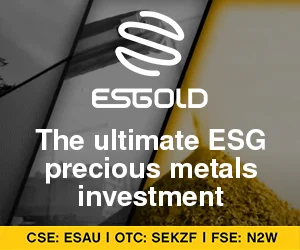Petrobras (NYSE:PBR) Shares Sold by Platinum Investment Management Ltd.: An In-Depth Analysis
In the ever-evolving landscape of global finance, the movements of major investment firms can often signal shifts in market sentiment and investment strategies. One such notable event occurred recently when Platinum Investment Management Ltd. announced the sale of its shares in Petróleo Brasileiro S.A. (Petrobras), a leading oil and gas company based in Brazil. This article delves into the implications of this decision, the current state of Petrobras, and what it means for investors and the broader market.
Understanding Petrobras: A Brief Overview
Petrobras, officially known as Petróleo Brasileiro S.A., is a state-controlled oil giant that plays a pivotal role in Brazil’s economy. Founded in 1953, the company is involved in various sectors of the oil and gas industry, including exploration, production, refining, and distribution. As one of the largest oil producers in Latin America, Petrobras has significant influence over global oil prices and energy markets.
The company’s stock, traded on the New York Stock Exchange under the ticker symbol PBR, has been a focal point for investors, particularly those interested in emerging markets. Petrobras has faced numerous challenges over the years, including fluctuating oil prices, political instability in Brazil, and allegations of corruption. However, it has also shown resilience and potential for growth, making it a subject of interest for both institutional and retail investors.
The Sale by Platinum Investment Management Ltd.
Platinum Investment Management Ltd., an Australian-based investment firm, has made headlines with its recent decision to sell a portion of its shares in Petrobras. This move raises questions about the firm’s outlook on the Brazilian oil market and the company’s future prospects. While the exact number of shares sold and the rationale behind the decision have not been fully disclosed, such actions often reflect broader investment strategies and market assessments.
Investment firms like Platinum typically conduct extensive research and analysis before making significant changes to their portfolios. The sale could indicate a shift in confidence regarding Petrobras’ ability to navigate ongoing challenges, including regulatory scrutiny, environmental concerns, and competition from renewable energy sources.
Market Reactions and Implications
The announcement of Platinum’s sale has sparked discussions among market analysts and investors. Generally, when a prominent investment firm divests from a major company, it can lead to fluctuations in stock prices. Investors often interpret such moves as signals of potential issues within the company or the industry at large.
In the case of Petrobras, the sale could lead to increased volatility in its stock price as market participants reassess their positions. Some investors may view the divestment as a red flag, prompting them to reconsider their investments in Petrobras. Conversely, others might see it as an opportunity to acquire shares at a lower price, especially if they believe in the company’s long-term potential.
The Broader Context: Challenges and Opportunities for Petrobras
Petrobras operates in a complex environment shaped by various factors, including geopolitical dynamics, oil prices, and domestic policies. The company has faced significant challenges in recent years, including:
Volatile Oil Prices: The oil market is notoriously unpredictable, with prices influenced by global supply and demand dynamics, geopolitical tensions, and economic conditions. Petrobras’ profitability is closely tied to oil prices, making it vulnerable to fluctuations.
Political Landscape: Brazil’s political environment has been tumultuous, with changes in government policies impacting Petrobras’ operations and investment strategies. Regulatory changes can affect everything from pricing to environmental regulations, creating uncertainty for investors.
Transition to Renewable Energy: As the world increasingly shifts towards renewable energy sources, traditional oil and gas companies face pressure to adapt. Petrobras has made efforts to diversify its energy portfolio, but the transition poses both challenges and opportunities.
Despite these challenges, Petrobras also has significant opportunities for growth. The company has vast oil reserves, particularly in offshore fields, and is investing in technology to enhance production efficiency. Additionally, as global energy demand continues to rise, there may be renewed interest in oil and gas investments, particularly in emerging markets like Brazil.
Conclusion: What Lies Ahead for Petrobras and Investors
The recent sale of Petrobras shares by Platinum Investment Management Ltd. serves as a reminder of the complexities inherent in investing in the oil and gas sector. While the divestment may raise concerns among some investors, it also presents an opportunity for others to reassess their strategies and consider the potential upside of investing in a company with a rich history and significant resources.
As Petrobras navigates its challenges and seeks to capitalize on emerging opportunities, investors will need to stay informed about market trends, regulatory developments, and the company’s strategic initiatives. The future of Petrobras remains uncertain, but its role as a key player in the global energy landscape is undeniable. For those willing to engage with the complexities of the market, Petrobras could still represent a compelling investment opportunity in the years to come.




